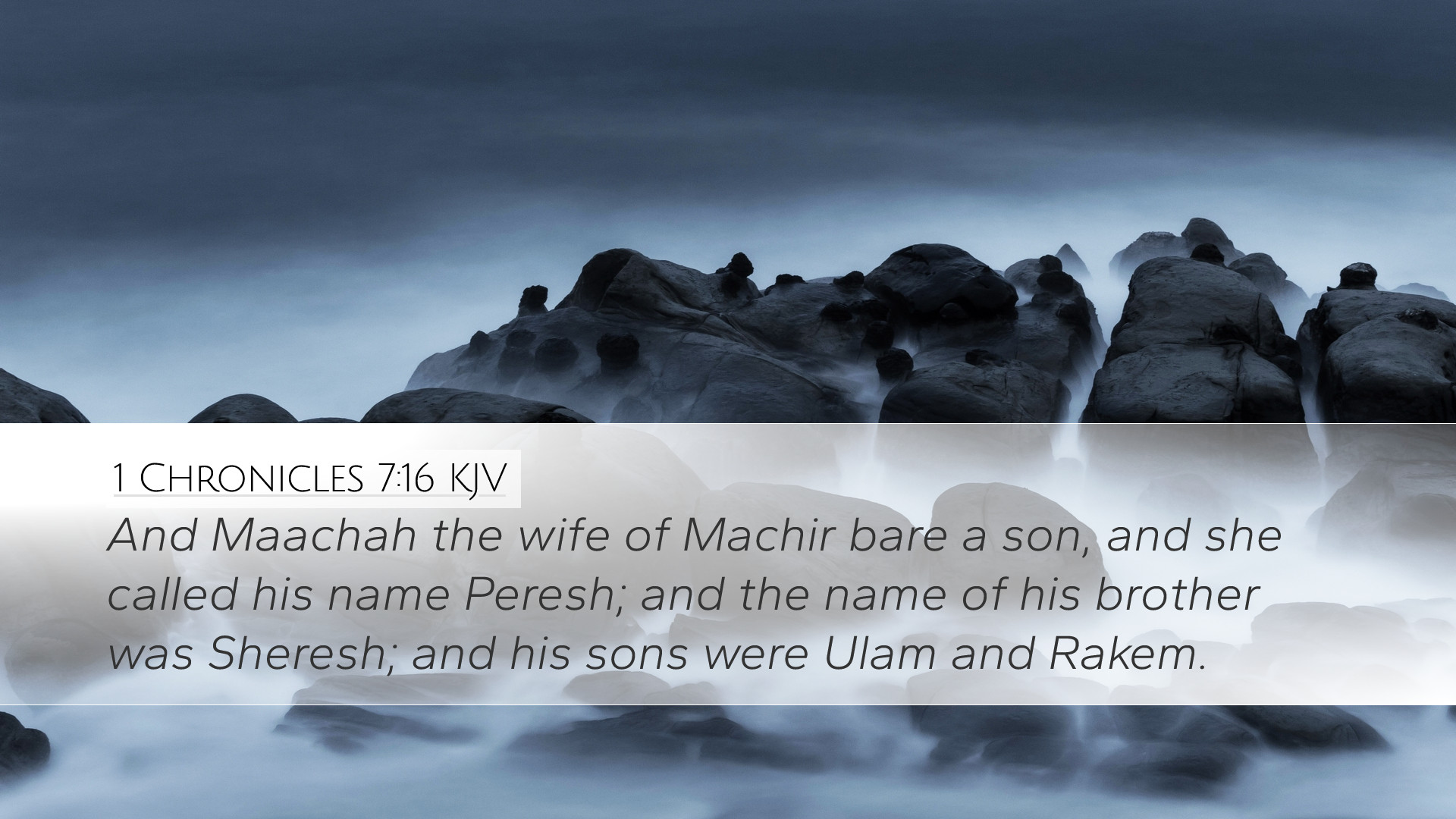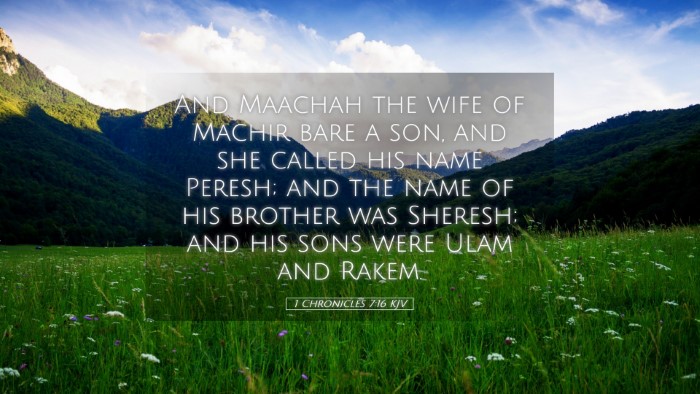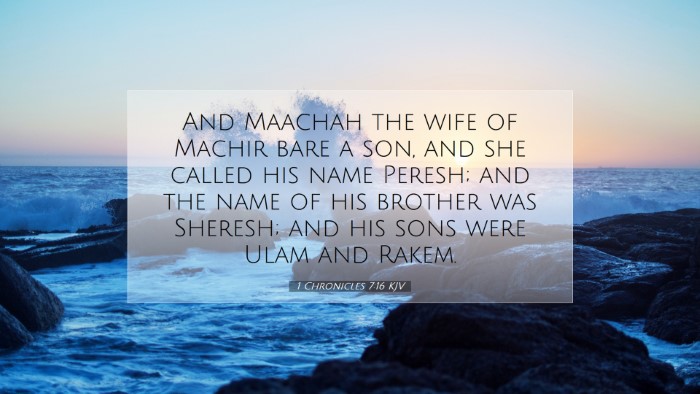Commentary on 1 Chronicles 7:16
1 Chronicles 7:16 states:
"And Maachah, the wife of Machir, bare a son; and she called his name Peresh: and the name of his brother was Sheresh." (1 Chronicles 7:16 KJV)
Introduction
This verse is pivotal within the genealogical context of the nation of Israel, particularly highlighting the lineage of the tribe of Manasseh. The focus on Maachah, her husband Machir, and their sons, Peresh and Sheresh, encapsulates the significance of familial relationships and tribal inheritance within the biblical narrative.
Historical Context
In the landscape of biblical history, genealogies served not only as records of ancestry but also as affirmations of identity and divine promise. The tribe of Manasseh, as one of the sons of Joseph, held a distinct place in the settlement of the Land of Promise. These records often reveal the faithfulness of God in preserving the lineage of His people.
- Significance of Names: The names Peresh and Sheresh carry weight in understanding the legacy they were meant to establish.
- Genealogical Importance: The continuing line from Machir to his son highlights the continuity of the tribe and God's covenant promises.
Commentary Insights
The commentaries of respected biblical scholars provide critical insights into the depth of this passage. Matthew Henry, Albert Barnes, and Adam Clarke give us diverse perspectives that enrich our understanding of the verse.
Matthew Henry's Commentary
Matthew Henry remarked on the significance of women in the genealogy, often overlooked in patriarchal societies. Maachah, while listed as a wife, plays a crucial role in the heritage of Manasseh.
He emphasizes that God’s salvation works through families and highlights the importance of naming as a declaration of destiny. The names signify more than mere identification; they reflect the purpose and calling that God has placed on these individuals and their descendants.
Albert Barnes' Insights
Barnes focuses on the implications of familial structure inherent in the verse. He notes the role of Machir as a leader within the tribe and how Maachah's bearing of sons emphasizes the tribe's strength and continuity.
Moreover, he addresses the cultural customs surrounding childbirth and naming within ancient Israel, suggesting the naming of the children carried prophetic significance grounded in hope for the future of their tribe.
Adam Clarke’s Analysis
Clarke delves into the historical references underscoring Machir’s importance. He outlines the identity of Machir as connected to Gilead, underscoring how this genealogical entry roots them within a broader historical narrative.
His commentary suggests that the mentioning of Maachah is integral, as it served to unify and strengthen the social structures pertinent to their descendants in terms of loyalties and relationships during times of conflict.
Theological Reflection
This verse compels pastors, students, and scholars to reflect on the significance of heritage and identity in the life of believers today. Just as Maachah’s family line plays an essential role in the history of Israel, so too do the families within our churches shape the spiritual legacy of future generations.
- Family as a Divine Institution: This passage affirms the biblical notion of family as a primary institution through which God's purposes are fulfilled.
- Purpose in Naming: Reflecting on the importance of names as a reflection of identity in Christ, believers are reminded of the new identity they hold.
Practical Applications
The study of 1 Chronicles 7:16 encourages practical applications in various aspects of ministry:
- Encouragement in Family Ministries: Pastors can emphasize the importance of the family unit in teaching biblical values.
- Investment in the Next Generation: Understanding the impact of naming and legacy can inspire the church to invest in youth programs, ensuring a strong, faithful heritage.
- Acknowledgement of Women’s Roles: As seen with Maachah, recognizing the significant roles women play within the faith community can enrich teaching and foster inclusivity.
Conclusion
In conclusion, 1 Chronicles 7:16 encapsulates pivotal moments of lineage that enrich our understanding of God's plan for Israel. The insights from Matthew Henry, Albert Barnes, and Adam Clarke combined embody a tapestry of theological depth that serves to educate and inspire the current generation of church leaders, students, and scholars as they navigate the narrative of Scripture, encouraging them to acknowledge the past while faithfully looking toward the future.


